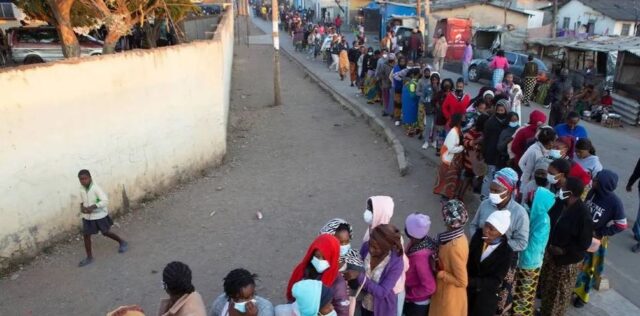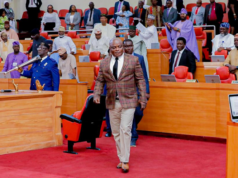Voters in 19 countries, including in three of the world’s largest democracies and three African countries, believe their political choices don’t matter and so they prefer a strong, undemocratic leader, a new report on people’s perception of democracy has shown.
The report published Thursday by the International Institute for Democracy and Electoral Assistance (IDEA) concluded that “democratic institutions are falling short of people’s expectations.” The 35-member organisation promotes democracy worldwide.
“It is past time that people’s perceptions are centred in conversations about the future of democracy; this analysis is a small but important first step towards that effort,” the Sweden-based organisation wrote.
The report titled, “Perceptions of Democracy Survey (PODS)” points to three broad findings. First, most people from a diverse array of countries around the world lack confidence in the performance of their political institutions and their access to them, and they are more dissatisfied than satisfied with their governments.

Second, self-identified minorities, women and low-income groups tend to perceive more obstacles to access and are generally more doubtful about institutional performance. Third, expert views and popular perceptions about how political institutions are doing do not always align. People are generally much more sceptical than experts, the report said.
The surveys had a margin of error hovering around 2-4 per cent and the number of respondents in each of the 19 countries was around 1,500. The sole exception was the Solomon Islands, where the small population meant they had a representative sample of 526 people, International IDEA noted.
The research aimed at identifying how people understand and assess a range of attributes of democracy in their country contexts.
The report was based on surveys made in Brazil, Chile, Colombia, Denmark, Gambia, India, Iraq, Italy, Lebanon, Lithuania, Pakistan, Romania, Senegal, Sierra Leone, the Solomon Islands, South Korea, Taiwan, Tanzania and the United States.
Core findings
In 11 of the 19 countries surveyed, less than half of the respondents expressed confidence in the most recent elections in their respective countries.
In 17 countries, less than half of the people are satisfied with their governments, International IDEA found. The survey included three of the largest democracies — Brazil, India and the United States.
In eight countries, “more people have favourable views of ‘a strong leader who doesn’t have to bother with parliament or elections,’” the institute said, adding that India and Tanzania stand out as countries “with relatively high levels of support for a ‘strong leader.’”
 People are also quite pessimistic about how much things have improved over time. It is in only four countries in the data set that “a majority feel they are doing better economically than their parents,” according to the 95-page study. It added that in the majority of countries, minorities are more doubtful about electoral credibility than others.
People are also quite pessimistic about how much things have improved over time. It is in only four countries in the data set that “a majority feel they are doing better economically than their parents,” according to the 95-page study. It added that in the majority of countries, minorities are more doubtful about electoral credibility than others.
The study also attempts to make comparisons of expert assessments and public evaluations of democracy and a comparison of representative samples and marginalised groups. It noted that the poorest in Brazil, Colombia, Romania, and Sierra Leone, are more likely to approve of the government’s performance than the rest of the population, IDEA said.
“In many cases, marginalised communities struggle to access institutions and have less confidence in their freedom to exercise their rights,” the report said.
ALSO READ: ANALYSIS: Democracy in decline in Africa? Not so fast
When it comes to judicial systems, in 18 countries “fewer than half of the people believe that the courts ‘always’ or ‘often’ provide access to justice.”
Iraqis have more faith in access to justice (28 per cent ‘always’ or ‘often’) than Americans (26 per cent), the report said.
Denmark is the only country where a majority of people feel that courts often or always provide equal access to justice.
The surveys were carried out by YouGov and GeoPoll and were done either by telephone or via the Internet last year, except for India where it was carried out in January.
International IDEA was founded in 1995. It was designed to “identify important but often neglected differences between various groups’ assessments of and attitudes related to democracy.”







